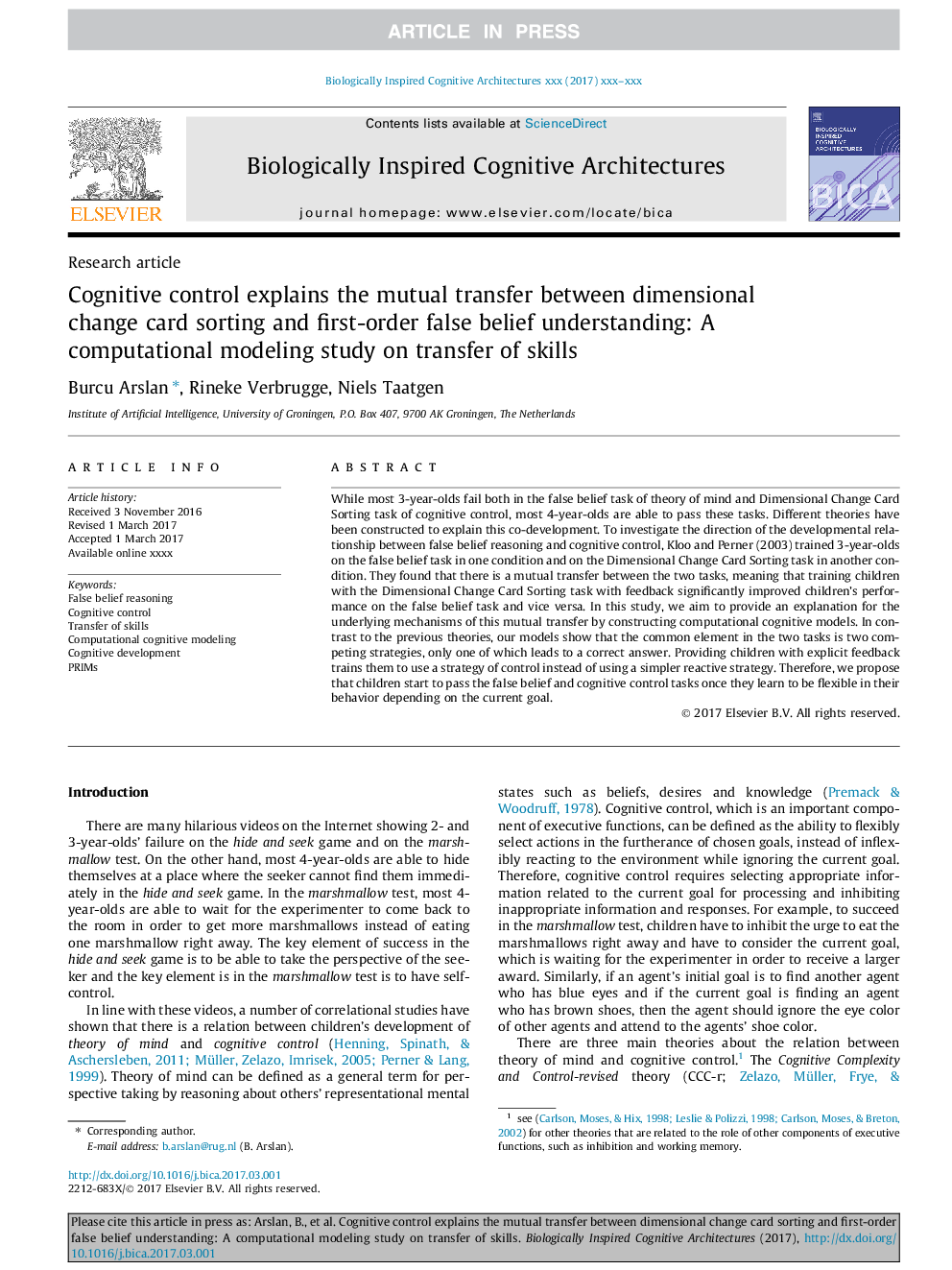ترجمه فارسی عنوان مقاله
کنترل شناختی توضیح می دهد که انتقال متقابل بین دسته بندی تغییر کارت بعد و درک باور غلط اول درجه اول توضیح می دهد: یک مطالعه مدل سازی محاسباتی در مورد انتقال مهارت ها
عنوان انگلیسی
Cognitive control explains the mutual transfer between dimensional change card sorting and first-order false belief understanding: A computational modeling study on transfer of skills
| کد مقاله | سال انتشار | تعداد صفحات مقاله انگلیسی |
|---|---|---|
| 125651 | 2017 | 11 صفحه PDF |
منبع

Publisher : Elsevier - Science Direct (الزویر - ساینس دایرکت)
Journal : Biologically Inspired Cognitive Architectures, Volume 20, April 2017, Pages 10-20

